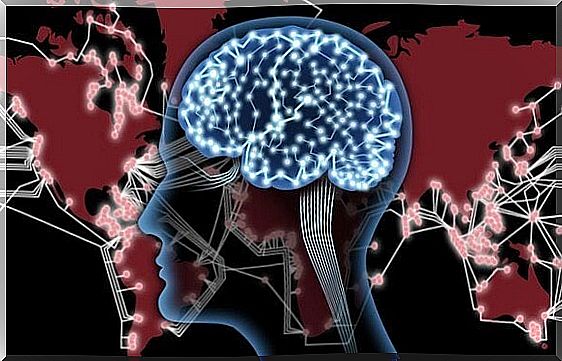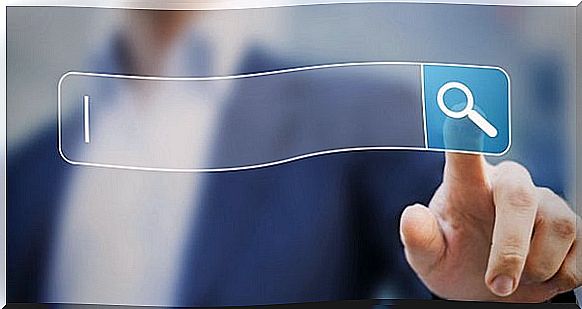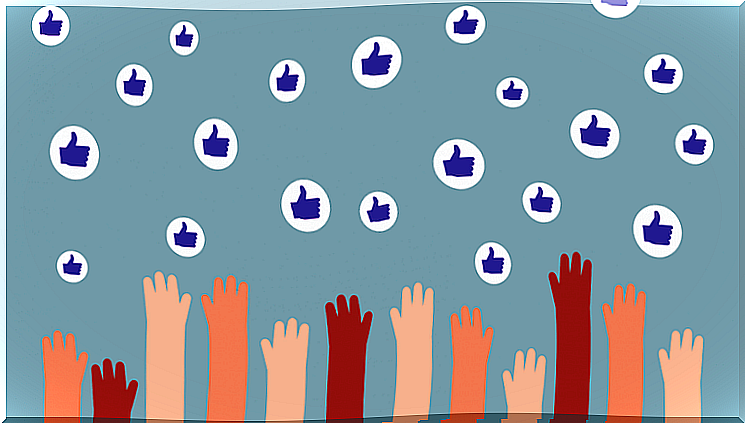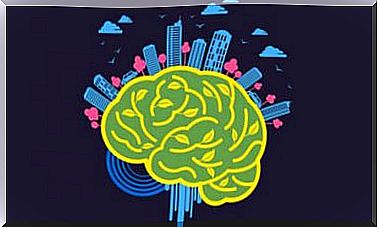The Evils Of The Internet: How It Diminishes Critical Capacity

Different authors and lines of thought have already reached the same conclusion: the internet has many harms to our critical capacity. We are not talking about a hypothesis, but a conclusion supported by facts, which is based on a very deep analysis. The web exists based on a set of operating rules and a certain logic that makes its users suffer several negative consequences from its use.
The deterioration of critical capacity is one of them. This ability corresponds to the application of a personal criterion that attributes value to the information or to a point of view that is presented. It allows you to determine the degree of validity and relevance of what you are reading or seeing, for example. The internet makes this process difficult, and that is why we can say that it reduces this capacity.
How does this happen? Many spaces on the online network, such as search engines or social networks, work from algorithms. At first, it’s just about pleasing the person, searching or organizing the information according to the users’ tastes and preferences. Over time, the process ends up limiting the experience of internet users, as only what they already know, like or agree with is shown. In the long run, this diminishes critical capacity. See more specifically why below.
The main harms of the internet
1. The information shown confirms previous opinions
When a person uses a search engine, it makes use of all the data already stored about that particular user. Thus, what will be shown first are the sites that tend to have the same line of thought as the person, because they are the sites that the user usually consults. A lot of material is left out of your search results.
Something similar happens with social networks. When you log in, the network brings information to the forefront of the people you interact with most often and who generally think similarly to you. You don’t even realize it, but your circle of people who actually appear on the network is much smaller than the total number of people you actually have.

The effect of all this is that you unwittingly end up in an ideological world that only confirms the opinions you already have. No opinions, information or ideas appear on your page that contradict yours. What social networks offer you is just confirmation of what you already know or think. This makes people have a limited idea of the world around them. They think that reality is like that, without realizing that they are being induced to see only a part of it. That’s why the internet reduces the critical capacity.
2. The internet reduces critical capacity by stimulating narcissism
Social networks have created a new type of addiction: the search for likes. It’s not that you have this consciously, but every time someone makes a post, whether directly or indirectly, what you expect is the reaction of other people approving what you’ve just said or shown. If that approval doesn’t come, frustration or even doubt about whether what you’re doing is good or right can arise.
Science has already shown that likes activate dopamine circuits. That is, they give pleasure and are increasingly seen as a reward mechanism. They make the person feel good about themselves because they presuppose acceptance from the group. This can be problematic on many levels, because dependence on likes shapes our opinions without realizing it.

This is another way in which the internet diminishes our critical capacity: it converts our ego into a product of social consumption, which always seeks the approval of others. Disagreeing could mean leaving a certain group or even facing public rejection. This makes us condition our thinking.
3. Promotes irrelevant social relationships
There are many ways to interact with other people on the internet. Among these media are, of course, social media. But there are also forums, chats and other similar media. In this way, the web creates the false feeling that we are not alone. It is as if we are all the time in an endless conversation, which has no beginning and no end. This conversation, in turn, revolves around the same themes over and over. After all, whether you like it or not, that’s what they talk about in that place.
Imperceptibly, physical contact is less and less necessary to interact with others. Network interactions assume adopting a physical posture in which we will almost always be sitting and looking at a screen. Both have effects on our body and our brain. Exercise helps in the health of our body, and physical contact increases the capacity for empathy through human exchanges and affection.

As we can see, the internet definitely diminishes critical capacity. Voluntarily and docilely, we adapt to new ways of living and relating through screens, which take us away from the experience of direct contact and real life. We end up living in a small world limited by frames that we create ourselves when we go online. These are the evils of the internet. What are you going to do to deal with them?









